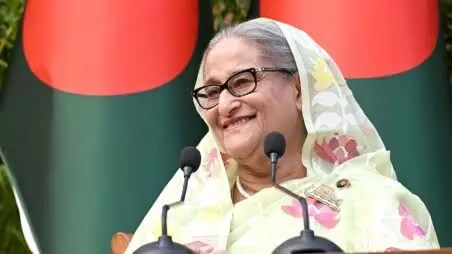Bangladesh's Geostrategic Shift and ULFA(I)'s Return: A Changing Power Dynamic in South Asia

With the decline of Sheikh Hasina's era, Bangladesh is undergoing significant geopolitical transformations. Under emerging leadership—symbolized by the visionary role of Dr. Md. Yunus—Bangladesh is repositioning itself from a historically modest actor to a key strategic player in the Asia Pacific region. This shift is not just diplomatic; it is a recalibration of the nation's role in regional power politics.
Historically, insurgent groups like ULFA found refuge and resources in Bangladesh. The country once offered sanctuary, particularly during periods of political leniency or calculated indifference. However, as Dhaka's stance hardened, with Bangladesh decisively turning against ULFA, the group's leader, Paresh Baruah, was forced to relocate to Myanmar.
This shift came with consequences. Myanmar, engulfed in ethnic turmoil and military conflict, is a precarious haven. Without steady international linkages and weapon supplies, ULFA(I)'s effectiveness in the dense, lawless jungles of Myanmar is compromised. The instability may have prompted a strategic reassessment.
In this context, recent reports by Assamese media that ULFA(I) is once again reentering Bangladesh merit serious attention.
Why is ULFA(I) returning to Bangladesh?
1. Bangladesh as a regional game-changer: The country's increasing engagement in Asia Pacific geopolitics makes it a critical node in global strategies. For insurgent groups, this means visibility, opportunity, and access to networks.
2. Geography advantage: Bangladesh's border with West Bengal, Assam, Meghalaya, Mizoram, and Tripura offers ULFA(I) logistical advantages for recruitment, movement, and smuggling. Ethnic and linguistic ties across the border further support the resurgence.
3. Strategic leverage: ULFA(I) needs a new platform to negotiate power. Bangladesh's growing importance in regional diplomacy means that hosting or infiltrating a strategic country enhances ULFA(I)'s bargaining chips in both domestic and international forums.
4. Arms and infrastructure: Historically, many of ULFA's arms consignments passed through Bangladesh. The return of such channels, whether covertly or due to political change, would be invaluable.
ULFA(I)'s suspected re-entry into Bangladesh reflects not only a tactical maneuver but also an acknowledgment of Dhaka's elevated strategic relevance. As Bangladesh continues to redefine its role in the region, its internal and border security dynamics will likely face new challenges from actors who see it as a launchpad for regional influence.
—Jayanta Gautam
